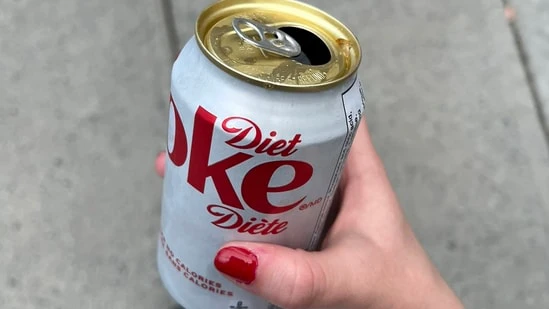The use of artificial sweeteners in daily diet and its implications on health was recently highlighted by WHO’s guidelines. It has been reported that aspartame is all set to be declared as carcinogen by WHO’s cancer research agency – International Agency for Research on Cancer (IARC) come June.
The effects of artificial sweeteners on health have been debated for long and even research doesn’t provide conclusive evidence. Studies say consuming artificial sweeteners could be safe, but the intake should be within a reasonable dose. This means that while consuming Diet Coke too often or in excess amounts is harmful people, people who have it less often are comparatively safe. ( Switching from sugar to artificial sweeteners? Here are dos and don’ts to keep in mind)
Artificial sweeteners may appeal to fitness conscious people with their low-calorie or zero-calorie promise, but its higher intake is also linked to high risk of cancer, kidney disease, and heart disease. Artificial sweeteners have been linked to 9% higher risk of any type of cardiovascular problem (including heart attacks) and an 18% greater risk of stroke, found NutriNet Santé, a large, Internet-based nutrition study – the findings of which were published online on September 7, 2022, by the BMJ.
“The effects of artificial sweeteners on heart health are still a topic of ongoing research, and there is no definitive consensus on whether or not they directly damage heart health. Artificial sweeteners are low-calorie or calorie-free alternatives to sugar that are often used as sugar substitutes in various food and beverage products,” says Dr. Nishith Chandra, Principal Director – Interventional Cardiology, Fortis Escorts Heart Institute, Okhla Road, New Delhi.
“Some studies have suggested a potential link between artificial sweeteners and adverse cardiovascular outcomes, while others have found no significant association. For example, a study published in the Journal of the American College of Cardiology in 2019 suggested an association between higher consumption of artificially sweetened beverages and an increased risk of cardiovascular disease and mortality. However, it’s important to note that this study only found an association and not a direct causal relationship,” says Dr Chandra.
No convincing evidence to support the claim
On the other hand, other studies have found no significant negative effects of artificial sweeteners on heart health.
“For instance, a review published in the European Journal of Clinical Nutrition in 2018 concluded that there is no convincing evidence to support the claim that artificial sweeteners directly harm cardiovascular health,” says Dr Chandra.
It’s worth noting that artificial sweeteners have been approved as safe for consumption by regulatory agencies such as the U.S. Food and Drug Administration (FDA) and the European Food Safety Authority (EFSA) when consumed within acceptable daily intake levels. These agencies have set specific guidelines and safety thresholds for the use of artificial sweeteners in food and beverages.
It also depends on individual reactions and sensitivities that may vary, and some people may experience adverse effects from consuming artificial sweeteners, such as digestive issues or allergic reactions.
“If you have any concerns about artificial sweeteners or their potential effects on your heart health, it’s best to consult with a healthcare professional who can provide personalized advice based on your specific circumstances,” says Dr Chandra.
Source: Hindustan Times










